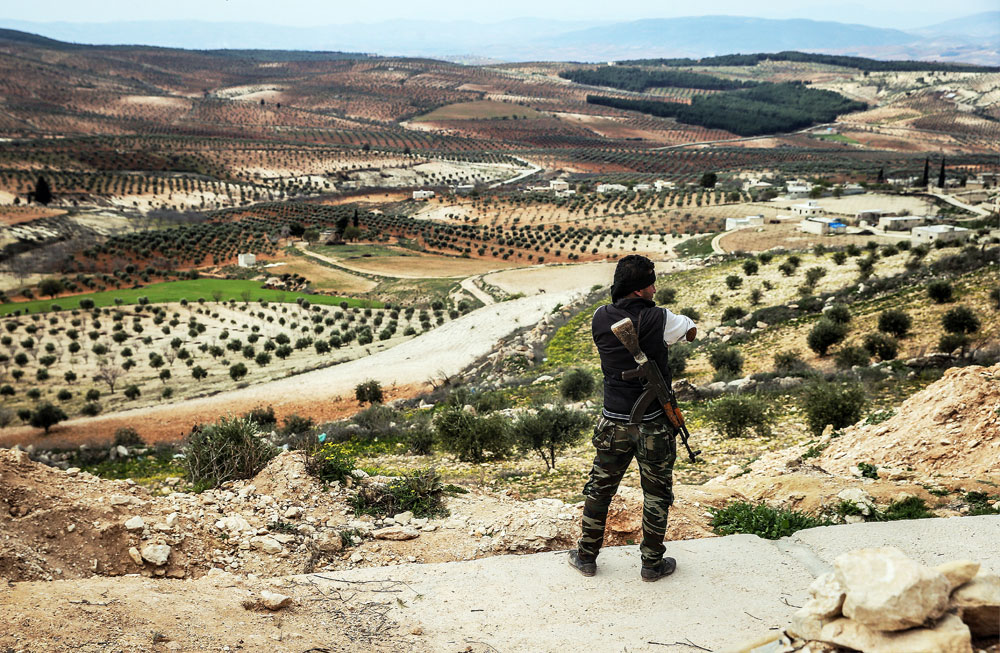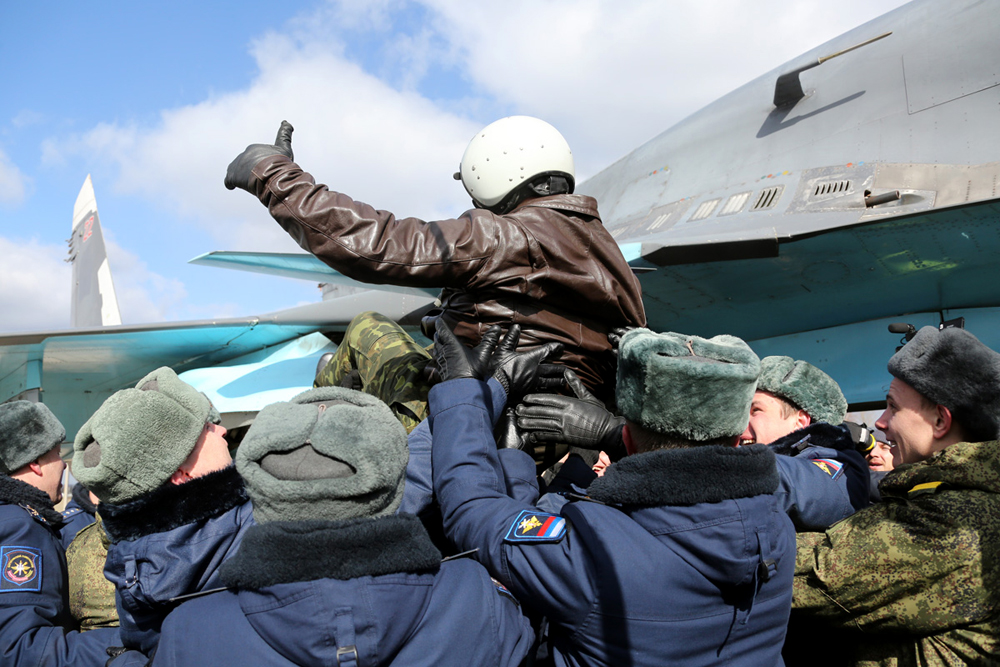Kurds declare Federation of North Syria – what's next?

An armed Kurdish fighter surveys the area from an elevation near the town of Azaz on the Syrian-Turkish border.
Valery Sharifulin / TASSKurds divide Syria
In the town of Rmeilan, about 200 delegates from various organizations of Syrian Kurds, Assyrians, Arabs, Turkomans and Armenians announced on March 17 the establishment of the Federation of North Syria. The scenario of the division of Syria into several parts, which would be effectively autonomous from Damascus, has begun to be implemented, the online newspaper Gazeta.ru reports.
According to a source among the Syrian Kurds, the federal arrangement itself caused controversy among the delegates, and because of this, the declaration of an autonomous Kurdish administrative entity appeared a day later than planned. Conference participants say the declaration of North Syria should be the beginning of the federalization of the whole country.
In fact, a federal system was declared by the Syrian Kurds in January 2014, when they agreed to establish autonomy for Rojava (the local name for Syrian Kurdistan) in the territories under their control. The total number of Rojava's population is estimated at 4.5 million people.
Previously, Kurdish enclaves were separated by the frontlines of territory held by Islamic State (ISIS). In the north, Rojava borders Turkey, which has designated Syrian Kurdish organizations as terrorist and closed joint border crossings.
However, in 2015, due to successful military operations against ISIS, the Syrian Kurds almost doubled their territory. Consequently, the Federation of Northern Syria is a compromise and unifying format for all peoples.
The federalization of Syria implies that the Syrian Kurds will be able to maintain their paramilitary People's Protection Units (YPG) and introduce governance on their controlled areas in the form in which they want to.
This is exactly what Turkey fears. The Turkish authorities have already said that the Syrian Kurds are assisting the Kurdistan Workers' Party (PKK). According to Turkish special services, the party's supporters were involved in the recent terrorist attacks in Ankara.
Russia is also not ready to officially support the decision by the Kurds. The spokesman for the Russian president, Dmitry Peskov, said that the "internal structure of the Syrian state is the business of the Syrians." But for Russia, "of course, it is important that Syria remains a unified state."
Kurds asked not to hurry with autonomy
The Kurds have chosen a very bad time to declare their autonomy, Sergei Filatov, an expert from the Foreign Ministry's MGIMO University, told the Izvestiya daily.
"Now it is crucial to reach an agreement in Geneva, where negotiations between the opposing sides of the Syrian conflict are underway," he said.
"It is essential that the dialogue is held without distracting and irritating factors. And, of course, the Kurdish demarche in this regard was completely out of place."
According to Filatov, it is now important for everyone to remain calm. This is especially true of Turkey, whose artillery has constantly shelled Kurdish areas in Syria in recent weeks. "Now Ankara may lose its head and begin to act emotionally, which will lead to negative consequences for the entire Middle East," he said.
Rojava trap
It was clear to everyone that even after the war, these areas would not return under the absolute control of Damascus – Kurdish authorities not only defended, but also cleared these areas from what they saw as alien elements, writes Expert Online.
According to Konstantin Dolgov, senior researcher of the Center for Arab and Islamic Studies at the Russian Academy of Sciences, the Kurds "are trying to take advantage of a difficult situation in which the Syrian government army is fighting against radical Islamist groups."
"The statement by the Kurds is a cheap shot at the Erdogan regime," said Vladimir Avatkov, director of the Moscow-based Center for Oriental Studies, International Relations and Public Diplomacy.
"For him, the creation of Kurdish autonomous regions on the border with Turkey is a great danger, because the Turkish Kurds may also become infected with 'autonomy'."
Read more: National Congress of Kurdistan supports declaration of federation in Syria>>>
All rights reserved by Rossiyskaya Gazeta.
Subscribe
to our newsletter!
Get the week's best stories straight to your inbox

